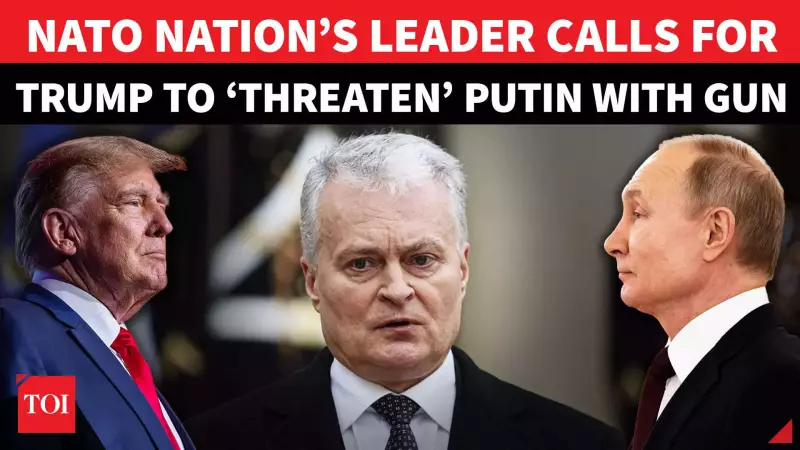
In a stunning diplomatic outburst that has sent shockwaves through international circles, Lithuanian President Gitanas Nausėda has offered what many are calling the most controversial advice of the political season. During a recent public address, the Eastern European leader suggested former US President Donald Trump should approach negotiations with Russian leader Vladimir Putin 'at gunpoint' - a statement that has left global observers both shocked and concerned.
The Explosive Statement That's Rocking Diplomatic Circles
The Lithuanian leader's extraordinary comments come at a time of heightened global tension, particularly regarding Russia's ongoing military actions in Ukraine. President Nausėda didn't mince words when describing his preferred approach to dealing with the Kremlin, advocating for what he sees as the only language Putin understands: overwhelming force and uncompromising positions.
Context Behind the Controversial Remarks
This isn't the first time President Nausėda has taken a hardline stance against Russia. Lithuania, having experienced Soviet occupation firsthand, has consistently been one of Moscow's most vocal critics within NATO and the European Union. However, the suggestion of conducting diplomacy 'at gunpoint' represents a significant escalation in rhetoric that many fear could further destabilize an already volatile international situation.
International Reactions and Implications
The global response to President Nausėda's comments has been mixed but largely critical:
- European diplomats have expressed concern about the inflammatory nature of the remarks
- Security experts warn such rhetoric could undermine diplomatic efforts
- Some Eastern European allies have shown quiet support for the tough stance
- Russian officials have predictably condemned the statement as 'dangerous warmongering'
This incident highlights the growing divide in international approaches to dealing with Russia and raises important questions about the future of diplomatic engagement in an increasingly polarized world.





